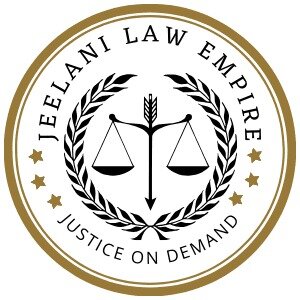Best Bankruptcy & Debt Lawyers in Karachi
Share your needs with us, get contacted by law firms.
Free. Takes 2 min.
List of the best lawyers in Karachi, Pakistan
About Bankruptcy & Debt Law in Karachi, Pakistan
Bankruptcy & Debt law in Karachi, Pakistan governs the legal processes and procedures related to financial hardships faced by individuals and businesses. It provides a framework for resolving debt-related issues and offers protection to debtors, creditors, and other stakeholders. Understanding the basics of bankruptcy & debt law can help individuals in Karachi navigate through financial challenges effectively.
Why You May Need a Lawyer
Seeking legal advice from a lawyer who specializes in bankruptcy & debt law can be crucial in various situations, including:
- Considering bankruptcy as a debt relief option
- Negotiating with creditors to restructure debts
- Defending against debt collection lawsuits
- Understanding legal rights and obligations related to debt
- Creating a repayment plan to manage debts effectively
Local Laws Overview
Bankruptcy & Debt laws in Karachi, Pakistan are primarily governed by the Companies Act 2017, Provincial Insolvency Act 1920, and the State Bank of Pakistan Act 1956. These laws provide guidelines for bankruptcy proceedings, debt recovery, insolvency, and related matters. It is essential to understand the key aspects of these laws, such as:
- Different types of bankruptcy and insolvency proceedings
- Eligibility criteria for filing bankruptcy
- Role of the court and other regulatory bodies in debt disputes
- Rights and obligations of debtors, creditors, and other stakeholders
- Debt recovery procedures and mechanisms
Frequently Asked Questions
Q: What are the different types of bankruptcy in Karachi, Pakistan?
A: The main types of bankruptcy in Karachi, Pakistan are voluntary bankruptcy, involuntary bankruptcy, and corporate bankruptcy.
Q: How long does the bankruptcy process usually take in Karachi, Pakistan?
A: The duration of the bankruptcy process varies depending on the complexity of the case, but it typically takes several months to a few years to reach a resolution.
Q: Can filing for bankruptcy stop debt collection calls and lawsuits?
A: Yes, filing for bankruptcy triggers an automatic stay, which temporarily stops debt collection efforts, including calls and lawsuits from creditors.
Q: Will bankruptcy erase all my debts in Karachi, Pakistan?
A: While bankruptcy can provide debt relief, not all debts can be discharged. Some non-dischargeable debts include child support, alimony, certain taxes, and student loans.
Q: Can I keep any assets if I file for bankruptcy in Karachi, Pakistan?
A: Karachi bankruptcy laws provide exemptions that allow individuals to retain certain assets, such as necessary household items, a primary residence, and tools of trade.
Additional Resources
For further information and assistance regarding bankruptcy & debt-related matters in Karachi, Pakistan, consider reaching out to the following resources:
- Karachi Chamber of Commerce and Industry - Debt Recovery Cell
- State Bank of Pakistan - Consumer Protection Department
Next Steps
If you are facing financial difficulties or require legal advice for bankruptcy & debt-related matters, it is essential to consult with a specialized lawyer. They can guide you through the process, explain your options, and help you make informed decisions to resolve your debt-related issues effectively.
Lawzana helps you find the best lawyers and law firms in Karachi through a curated and pre-screened list of qualified legal professionals. Our platform offers rankings and detailed profiles of attorneys and law firms, allowing you to compare based on practice areas, including Bankruptcy & Debt, experience, and client feedback.
Each profile includes a description of the firm's areas of practice, client reviews, team members and partners, year of establishment, spoken languages, office locations, contact information, social media presence, and any published articles or resources. Most firms on our platform speak English and are experienced in both local and international legal matters.
Get a quote from top-rated law firms in Karachi, Pakistan — quickly, securely, and without unnecessary hassle.
Disclaimer:
The information provided on this page is for general informational purposes only and does not constitute legal advice. While we strive to ensure the accuracy and relevance of the content, legal information may change over time, and interpretations of the law can vary. You should always consult with a qualified legal professional for advice specific to your situation.
We disclaim all liability for actions taken or not taken based on the content of this page. If you believe any information is incorrect or outdated, please contact us, and we will review and update it where appropriate.
Browse bankruptcy & debt law firms by service in Karachi, Pakistan
Karachi, Pakistan Attorneys in related practice areas.

















